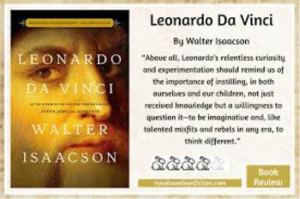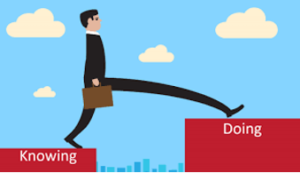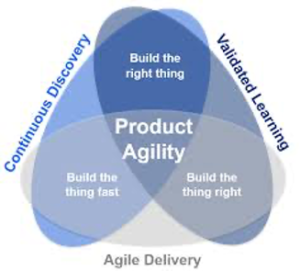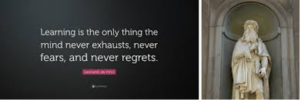
December 16, 2020
In the digital world,
we can still learn a lot from Leonardo Da Vinci

Is your competition learning faster than you are?
The main theme of Walter Isaacson’s biography of Leonardo DaVinci is “the ability to make connections across disciplines – arts and sciences, humanities and technology – is a key to innovation, imagination and genius.” The source of DaVinci’s genius was his insatiable curiosity and intense observational skills all of which he recorded in hundreds of notebooks.
The unprecedented disruption from multiple waves of digital technology is continually redefining how companies need to engage with their customers, employees, supply chain partners, and other key stakeholders. Simply put, if you and your organization do not stay at the forefront of this learning curve, your competitive viability is at stake.
Knowing is as important as doing

Almost every C-level executive I speak with tells me that they are so busy doing their business that they have no time to think about and learn new things that will impact their company’s performance. In KPMG’s Global CEO Outlook survey of 400 CEOs, 85% “admit vulnerability about the amount of time they have to spend strategizing about the forces of disruption and innovation.”
The consequences of this lack of focus and attention is that critical decisions often get made without sufficient understanding of what is at stake and what tradeoffs should be made to gain the desired outcomes.
A recent HBR article entitled “Good Leaders Are Good Learners” found that leaders in a learning mode benefited by adopting a “growth mindset” that allowed them to experiment with alternative strategies and approaches to problems and to use postmortems to learn from the results of these experiments. This approach allowed these leaders to be more agile in adapting to changing environments as well as to be more innovative in approaching new challenges.
Learning at the rate of discovery

Speed to market and time to value are the new metrics for competitive success. New product lifecycles have shrunk from years to quarters to months to weeks to days to hours. Those organizations that have successfully adapted to this new cadence are continually distancing themselves from the competition.
Developing and deploying systems of engagement and systems of intelligence enable companies to match their speed of learning to their speed of discovery.
Jeff Bezos has built Amazon around learning on a massive scale via experimentation. As he said, “if you double the number of experiments you do per year, you are going to double your inventiveness.”
What would Leonardo do if he were a CEO today?

At the end of his biography, Walter Isaacson provides a “wealth of lessons” he thinks today’s leaders can learn from Leonardo DaVinci. I have included some examples of what I think these leaders have learned:
- Be curious, relentlessly curious
- When Satya Nadella took over as CEO of Microsoft in 2014 he declared that the new game was to be a “learn-it-all company rather than a know-it-all one.” A learn-it-all company makes the decision that every day will be a new day, with learning, exploring, and experimenting the norm.
- Retain a childlike sense of wonder
- Marc Benioff uses a “beginner’s mind” approach to constantly see the world with fresh eyes. “I kind of try to let go of all the things that have ever happened so far in our industry, which is a lot of stuff, and just go, OK, what’s going to happen right now? Another way to say it is you can have an expert’s mind, where you have few possibilities or you can have a beginner’s mind, where you always have every possibility.”
- Observe
- IDEO’s design thinking is based on observational research where innovation team members physically observe customers using a product or service and are able to see things the customer does not even recognize they are doing.
- Think visually
- Steve Jobs was more obsessed with how the iPhone looked than what it could do. He also halted the opening of the first Apple store two days before it was set to go because he did not like the way the store looked.
- Collaborate
- Companies must master the ability to assemble and manage business partner ecosystems in order to successfully compete as digital enterprises. For every $1 of revenue Microsoft generates, its partner ecosystem generates $9.
- Be open to mystery
- Elon Musk imagined taking people to Mars to explore the living potential of another planet.
Learning faster than the competition is the only sustainable competitive advantage. This requires that CEO’s and their senior leadership teams embrace and endorse the value of insatiable curiosity and a passion for learning.
There is no playbook that you can study that provides the right answers to all the unknowable outcomes of the current age of digital disruption. As Leonardo DaVinci understood in his lifetime, it was up to his powers of observation and the ability to see patterns and make connections across disciplines that shaped his view of the world. These are the leadership skills and capabilities that will determine which companies succeed and which companies fail.
As always, I am interested in your comments, feedback and perspectives on the ideas put forth in this blog. Please e-mail them to me at here. And, if this content could be useful to someone you know please share it here:


